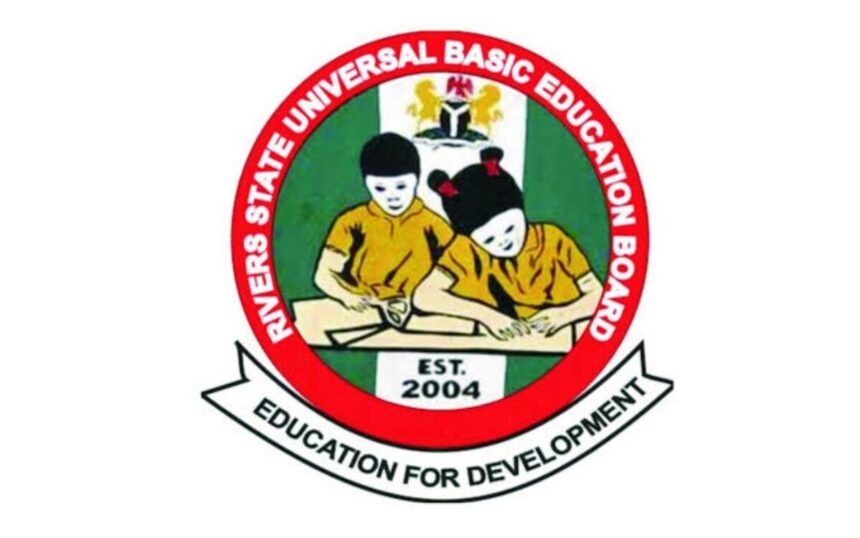The Universal Basic Education Commission (UBEC) has launched Nigeria’s largest teacher development programme with a ₦22 billion investment in teacher capacity building to enhance teaching and learning outcomes.
Executive Secretary of UBEC, Aisha Garba, announced this while delivering her remarks at the 27th quarterly meeting of UBEC management with the chairmen of State Universal Basic Education Boards (SUBEBs) in Lagos.
She also revealed that the commission had recorded improvement of states’ access to financing for basic education with 27 out of the 36 states and FCT, accessing part of the ₦121 billion unaccessed matching grants backlogs from 2024, saying this represents a 65 percent increase in access to finance.
Garba reaffirmed the commission’s commitment to bridging the gap between planning and performance in Nigeria’s basic education sector towards ensuring access to quality education for every Nigerian child.
She highlighted the significant strides made in reforming and repositioning the sector, noting that progress recorded so far is only a first step towards achieving greater impact.
She outlined some of these reforms to include: “Revision of the UBEC matching grant formula to improve data-driven resource allocation, equity, and accountability.
She said: “Revamping of the two-decade-old Basic Education Action Plan (BEAP) template and process to promote needs-based planning and accelerate implementation.
“Expansion of school infrastructure nationwide, with 4,900 classrooms constructed, 3,000 renovated, and 354,000 units of furniture supplied, directly benefiting over 2.3 million learners in 2025 alone.
“Launch of Nigeria’s largest teacher development programme with a ₦ 22 billion investment in teacher capacity building to enhance teaching and learning outcomes.
“Digitising quality assurance monitoring, with over 500 officers trained to use real-time electronic monitoring tools”.
She emphasised that while these reforms represent significant progress, they must be consolidated through stronger accountability and performance management systems.
“Our sector is not lacking in sound policies and robust plans for basic education. The real challenge is translating these plans into tangible outcomes. Too often, we see a disconnection, between planning and performance, largely due to poor coordination, weak institutional capacity, inconsistencies in financial management, and limited mechanisms to track progress and adjust programmes,” Garba stated.
She noted that this reality informed the theme of the 27th quarterly meeting tagged, ‘Bridging the Gap between Planning and Performance towards Achieving Quality Basic Education,’ describing it as both timely and urgent.
“If we are to move from aspirations to impact, UBEC cannot do this work alone. Only through state-level collaboration, commitment, and consistency can we ensure that every Nigerian child not only has access to education but also receives the quality learning they deserve,” In his remarks, the dean of SUBEB chairmen, Professor Shehu Raheem Adaramaja, emphasised the importance of evidence-based planning, digital tools, and data-driven decision-making in strengthening basic education delivery.
He urged SUBEBs and UBEC to conduct regular assessments to track learners’ progress and ensure that schools are adequately equipped with classrooms, libraries, technology, and learning materials.
The board meeting was concluded with a renewed commitment from UBEC and SUBEBs to align strategies, strengthen accountability mechanisms, and work collectively toward achieving quality basic education for every Nigerian child.
Meanwhile, UBEC has reaffirmed commitment towards integration of Luminah 2030 into its operations, work plans and budgets to accelerate efforts in tackling the challenge of out-of-school children in the country.
UBEC Executive Secretary, Aisha Garba, stated this in Abuja at the official handover of Luminah 2030 to the commission by the officials of the Federal Ministry of Education.
Garba disclosed that the commission would align its operations with State Universal Basic Education Boards (SUBEBs) frameworks to guarantee the programme’s ownership and delivery at scale.
Launched under the Federal Ministry of Education in March 2025, Luminah is a flagship programme designed to empower one million underserved Nigerian girls with access to education, vocational training and community support by year 2030.
It is being implemented across 12 pilot states across the six geopolitical zones namely: Yobe, Taraba, Kano, Jigawa, Benue, Federal Capital Territory (FCT), Ebonyi, Anambra, Bayelsa, Akwa lbom, Lagos and Oyo, with plans for national scale-up by 2030.
Represented by the commission’s deputy executive secretary, Technical, Razak Akinyemi, the UBEC boss explained that incorporating Luminah 2030 would strengthen the commission’s ongoing efforts to reduce the number of out-of-school children and improve learning outcomes, especially for girls in rural and low-income communities.
The initiative, she said, “aligns with Nigeria’s commitment to achieving Sustainable Development Goal (SDG) four on inclusive and equitable quality education.
According to Garba, collaboration with SUBEBs is crucial for ensuring sustainability and ensuring that the gains of the programme extend beyond its initial life span.
She also assured stakeholders that UBEC would prioritise transparency and accountability in the disbursement of funds and deployment of resources under the Luminah 2030 programme.
She said: “Most importantly, this journey will remain collaborative, every partner, every stakeholder, and every state that has contributed to shaping Luminah will continue to have a voice and a role as we advance together,
“With this migration, UBEC takes full responsibility for sustaining and strengthening the initiative. Though, the implementation is now housed within UBEC, it must be emphasised that the Federal Ministry of Education and the Luminah committees remain central to this journey. Their continued policy oversight, technical guidance, and strategic direction will be critical in ensuring that Luminah 2030 stays aligned with the national vision for education and the Sustainable Development Goal four.
“UBEC will continue to walk hand in hand with the ministry, the committees, and all stakeholders building on past successes and confronting the challenges ahead with unity of purpose”.
Also speaking, National Co-ordinator of National Coordinator of the Adolescent Girls Initiative for Learning and Empowerment (AGILE) Project in Nigeria, Mrs Amina Haruna Buba, said the Luminah 2030 initiative was conceived by the Minister of State for Education, Professor Suwaiba Sa’id Ahmad, as a bold and transformative response to Nigeria’s education crisis, particularly the socio-economic barriers, cultural norms, and financial constraints that keep millions of girls out of school.
According to her, Luminah 2030 integrates access, foundational learning, skills development, and community engagement in ensuring that no child is left behind.
READ ALSO: 27 states access N121bn backlog of matching grant — UBEC boss
WATCH TOP VIDEOS FROM NIGERIAN TRIBUNE TV
- Relationship Hangout: Public vs Private Proposals – Which Truly Wins in Love?
- “No” Is a Complete Sentence: Why You Should Stop Feeling Guilty
- Relationship Hangout: Friendship Talk 2025 – How to Be a Good Friend & Big Questions on Friendship
- Police Overpower Armed Robbers in Ibadan After Fierce Struggle






